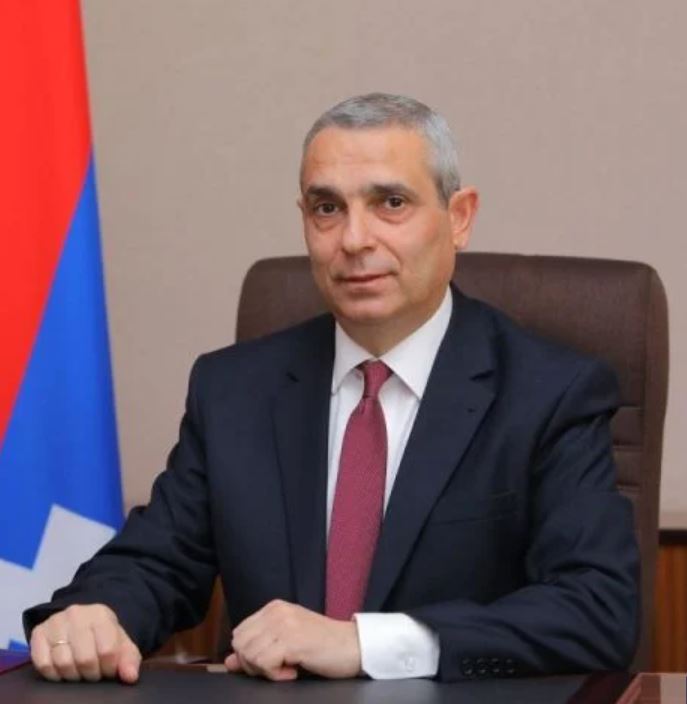Azerbaijan tried and is trying to compensate for the lack of any legal argument for its claims to Nagorno-Karabakh with aggression. Masis Mayilian
In an exclusive interview with “Artsakhpress”, the ambassador on special assignment of the President of the Republic of Artsakh, Masis Mayilian spoke about the problems of the methodology of the negotiation process for the settlement of the Artsakh conflict, Azerbaijan’s terrorist actions against Artsakh, the steps to neutralize these manifestations by the international community and other issues on the agenda related to the Artsakh issue.
ARTSAKHPRESS: We present the interview below:
-Mr. Mayilian, over the years you have repeatedly spoken about the need to change the methodology of the negotiation process, pointing out that the current methodology will sooner or later lead to attempts to resolve the conflict by force. What did you mean and what, in your opinion, should have been changed?
– What I meant is that the basis of the settlement should be addressing the root cause of the conflict, namely the status of Artsakh, rather than its consequences, in particular the issue of territories. For some reason, many people forget the fact that at the time when the Karabakh Movement started, which later developed into the Azerbaijan-Karabakh conflict, because Azerbaijan initially tried to drown the will of the Artsakh people in blood, there was no issue of territories, as well as problem of refugees or internally displaced persons. These issues appeared later, as a result of the war unleashed by Azerbaijan. So, my point is that there is a need to correctly formulate the cause-and-effect relationships of the Artsakh problem.
The issue of determining the party, who provoked the violence, is also fundamental. It is well known that Azerbaijan received international recognition on the condition of accepting the disputed status of Nagorno-Karabakh and the commitment to resolve this dispute peacefully. But immediately after joining the CSCE/OSCE, Azerbaijan violated this commitment and unleashed a war against Nagorno-Karabakh. The defeat in the war created a new status quo and an internationally recognized line of contact between the parties to the conflict.
Unfortunately, Azerbaijan’s aggression never received the proper international condemnation. Nevertheless, during the negotiations the authorities of both Armenia and Nagorno-Karabakh have repeatedly expressed their readiness to reconsider the line of contact. Such readiness was conditioned by the provision of inviolable international guarantees of non-resumption of hostilities until the full settlement of the conflict through the determination of the final status of Nagorno-Karabakh.
Azerbaijan justifies all of its aggressive actions by alleging that it is acting on the internationally recognized sovereign territory of Azerbaijan: it has no other arguments to justify its illegal and inhuman actions. Therefore, it is necessary for the countries that have recognized the sovereignty of Azerbaijan to realize that Azerbaijan justifies its inhuman actions by the fact of their recognition.
Therefore, the international decisions hastily adopted after the collapse of the Soviet Union encouraged the continuation with impunity of illegal actions against the people of Nagorno-Karabakh. No one should forget that, having received such recognition, Azerbaijan assumed the responsibility and international commitment to resolve disputes peacefully. It has long been known what Azerbaijan’s promises are worth, but no one seems to be rushing to call it to account.
– In your posts on Facebook, you have qualified the blockade of Artsakh as a manifestation of terrorism. Do Azerbaijan’s actions fall under the classic definition of terrorism?
– The actions of the Azerbaijani leadership, which is holding 120,000 residents of Artsakh hostage, as well as the political and mercantile demands put forward by official Baku for their release, according to international law, are a form of warfare and a manifestation of international terrorism. This means that the international response must also be adequate and follow the logic of confronting and punishing aggression and international terrorism.
– What do you think the international community should do to counter such a manifestation of terrorism?
– To counter the threat of terrorism, international law and international practice provide for joint actions by law enforcement agencies of States aimed at combating international terrorism. Since the illegal blockade of the Republic of Artsakh has been going on for quite a long time, and the people of Artsakh are facing a real threat of ethnic cleansing, the community of States should consider all possible options, including the use of force as part of international anti-terrorist cooperation, in the name of saving 120 thousand civilians. The community of States may be inclined towards this option, and there is a solid legal basis for this, namely the decisions of the ECtHR and the International Court of Justice, as well as the Trilateral Statement of November 9, 2020 signed, but flagrantly violated by Azerbaijan.
More details here























































